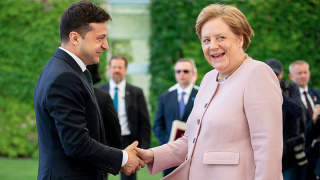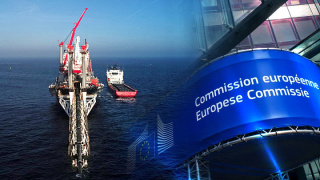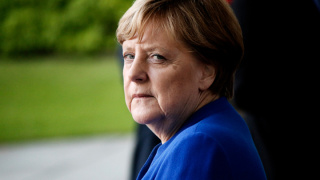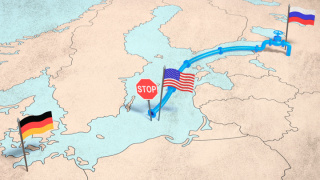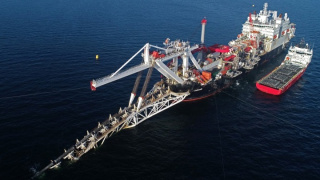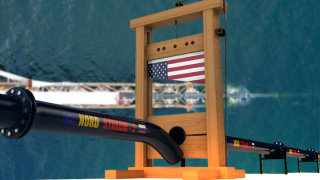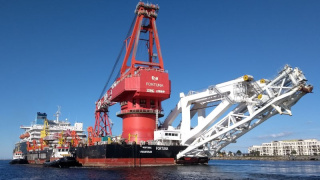Has The EU Managed to Bury The Nord Stream 2?
For two months, there was talk that the European Union could subordinate Nord Stream 2 to the Third Energy Package, which in 2014 ditched South Stream. The European Commission proposed amendments to the gas directive. According to them, the same EU internal rules apply to offshore pipelines from third countries as on land pipelines. The gas supplier cannot be a gas distributor at the same time. Secondly, one company cannot fill more than half of the pipeline’s capacity.
Exceptions to these rules are permissible with the consent of the country that receives gas, that is, Germany. But it also requires the approval of the European Commission. Since Gazprom is both a supplier and a company that is constructing Nord Stream - 2 through its subsidiary Nord Stream 2 AG, there is a threat of under construction and under-loading of the gas pipeline.
Nord Stream 2 is a 1224 km long gas pipeline. The capacity of two pipelines is 55 billion cubic meters of gas per year. The sole shareholder of Nord Stream 2 AG took over half the cost of the project - about 4.75 billion euros. The second part of the investment was made by European companies: the Anglo-Dutch Shell, the Austrian OMV, the French Engie and the German Uniper and Wintershall. The total cost of the project is 9.5 billion euros. Completion of the project is scheduled for 2019.
The document adopted today by the European Union theoretically retains both threats identified above, but Gazprom has every opportunity to avoid them. As for the construction of the Nord Stream - 2, Russia can create a new company independent of Gazprom and arrange for the remaining 50-kilometer section of the gas pipeline to which the EU has jurisdiction.
In terms of gas injection, theoretically, a similar method can also be applied. So that a part of the gas supplied is pumped not by Gazprom, but by another Russian company. But this is not necessary to do. At least until the European Commission sets an ultimatum on the need to load 50% of the capacity by another company.
The managing partner of the Veta expert group, Ilya Zharsky, in an interview with Gazeta.ru, noted that theoretically other participants in the European market could be allowed to pump. But de facto this will not happen, since the Nord Stream - 2 concept states that the pipe from Russia will be filled with Gazprom, because it is the only exporter.
Confidence and calm reign not only in expert, but also in political and business circles. The Minister of Energy of Russia, Alexander Novak, noted the day before that the new amendments to the directive “are softer than the version that was considered initially” and will not damage the construction of Nord Stream 2. Vladimir Chizhov, Russia's permanent representative to the EU, said the same thing, recalling the possibility of Berlin to demand exceptions to the rules of the Third Energy Package.
Confidence in the completion and implementation of the project is also added by two other factors - the authority of Germany and the demand for energy. German Chancellor Angela Merkel has repeatedly defended the gas pipeline from the attacks of Washington. Donald Trump accused Merkel of driving Europe into dependence on Russia.
Having a solid political weight within the EU, Germany is still able not only to bring the project to completion, but also to "knock out" exceptions to the European Commission rules that other companies should load 50% of gas.
The second most important factor is the growing demand in Germany and the EU for Russian gas. Nord Stream 2 AG representative Jens Muller has already warned that gas production in Europe could fall by 50% in the next two decades. The fall is caused by the "drying out" of the North Sea deposits. Russia's competitors — the United States and Qatar — offer more expensive gas, and North Africa (Algeria, Libya) is politically unstable. So the only hope for Russia.
The purpose of the adopted gas directive is formally to prevent the emergence of monopolies in the European energy market.
The real task of the document is to limit the influence of Russia. The supranational institutions of the European Union - the European Commission and the European Parliament - particularly insisted on this. The latter, in unison with the Congress and the White House, generally proposed completely abandoning Nord Stream 2.
Summarizing, we can say that the EU authorities have created legal obstacles against the Nord Stream 2, but in fact they are unlikely to interfere with the implementation of the project.



